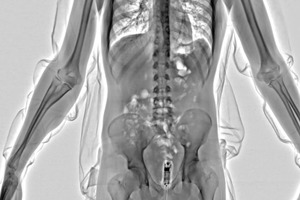£30 million dry dock contract supports 300 Scottish jobs
Press release
£30 million contract for dry-dock maintenance for the Queen Elizabeth Class (QEC) aircraft carriers has been awarded to Babcock International Group, in Scotland

- £30 million to provide dry dock maintenance for Queen Elizabeth Class carriers
- 300 jobs supported across Rosyth dockyard and wider supply chain
- Follows both QEC carriers undertaking international engagements with allies
The 10-year agreement will ensure the two warships – HMS Queen Elizabeth and HMS Prince of Wales – are able to undergo dry dockings for planned maintenance and repair at Babcock’s Rosyth facilities, meaning the vessels continue to operate safely and remain available for defence operations, both for the UK and its allies.
The work will help to sustain 300 jobs across the Rosyth facility and the wider supply chain, contributing to UK prosperity, strengthening the Union and supporting the government’s levelling-up ambitions.
Defence Procurement Minister Jeremy Quin said:
The Queen Elizabeth Class Carriers are the flagships of our Royal Navy and it’s crucial they remain ready to protect and defend the UK and our allies.
Both carriers had their final construction in Rosyth, and I’m pleased they will return for their dry-dock maintenance, supporting vital jobs and skills in Scotland.
QECs require dry-docking periodically throughout their lives to undertake maintenance and repair activities that will ensure the UK continues to have a flexible and modern naval force that can respond to future threats.
The QECs continue to uphold security both in UK waters and overseas. HMS Prince of Wales recently supported Exercise Cold Response with her sister ship HMS Queen Elizabeth carrying out vital training and exercises in waters close to the UK to keep her ready for operations anywhere in the world.
Steve Coates, DE&S Queen Elizabeth Class Group Leader, said:
Securing this contract is another important step on the QEC journey. The agreed partnership is a real testament to the great working relationship forged between the MOD and industry. The work that will take place will help to sustain vital jobs and skills at the Rosyth shipyard where the carriers were built and, by drawing on an extensive supply chain, will contribute to wider UK prosperity.
The contract was awarded by Defence Equipment & Support (DE&S) through a robust and transparent competition, encouraging strong bids from viable dockyards with the requisite facilities and experience of docking large vessels, whether military or civilian.
Sean Donaldson, Babcock’s Managing Director of Marine Engineering and Systems and the Rosyth site, said:
We are delighted to have been awarded the contract to provide dry dockings for the aircraft carriers over the next decade. The investments in our Rosyth infrastructure and facilities over the last 10-years mean we are ideally placed to deliver projects of this size and scale. The programme will also benefit from the extensive knowledge and expertise of Babcock’s skilled workforce which is steeped in carrier experience. It’s a really proud moment for us.
Published 16 May 2022

